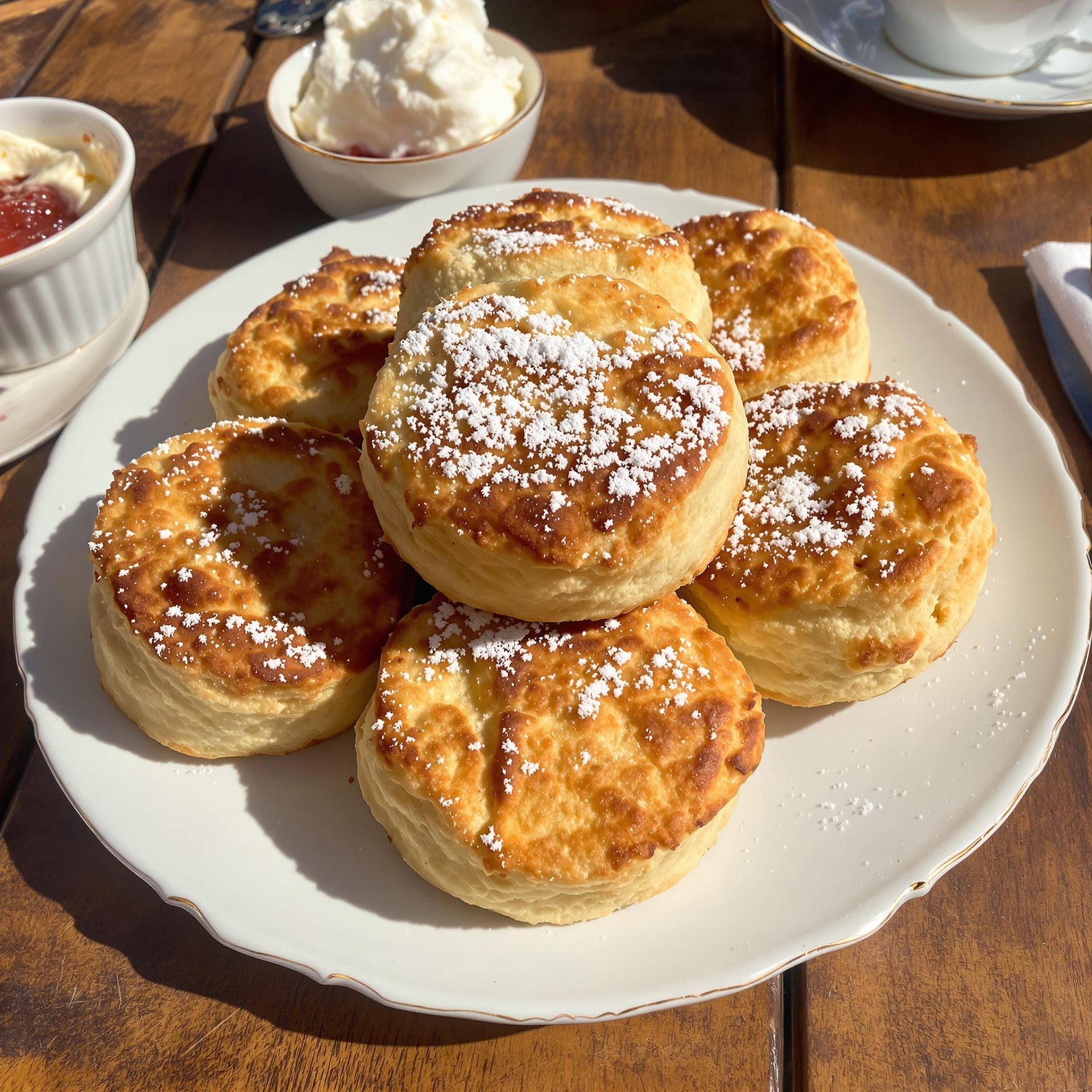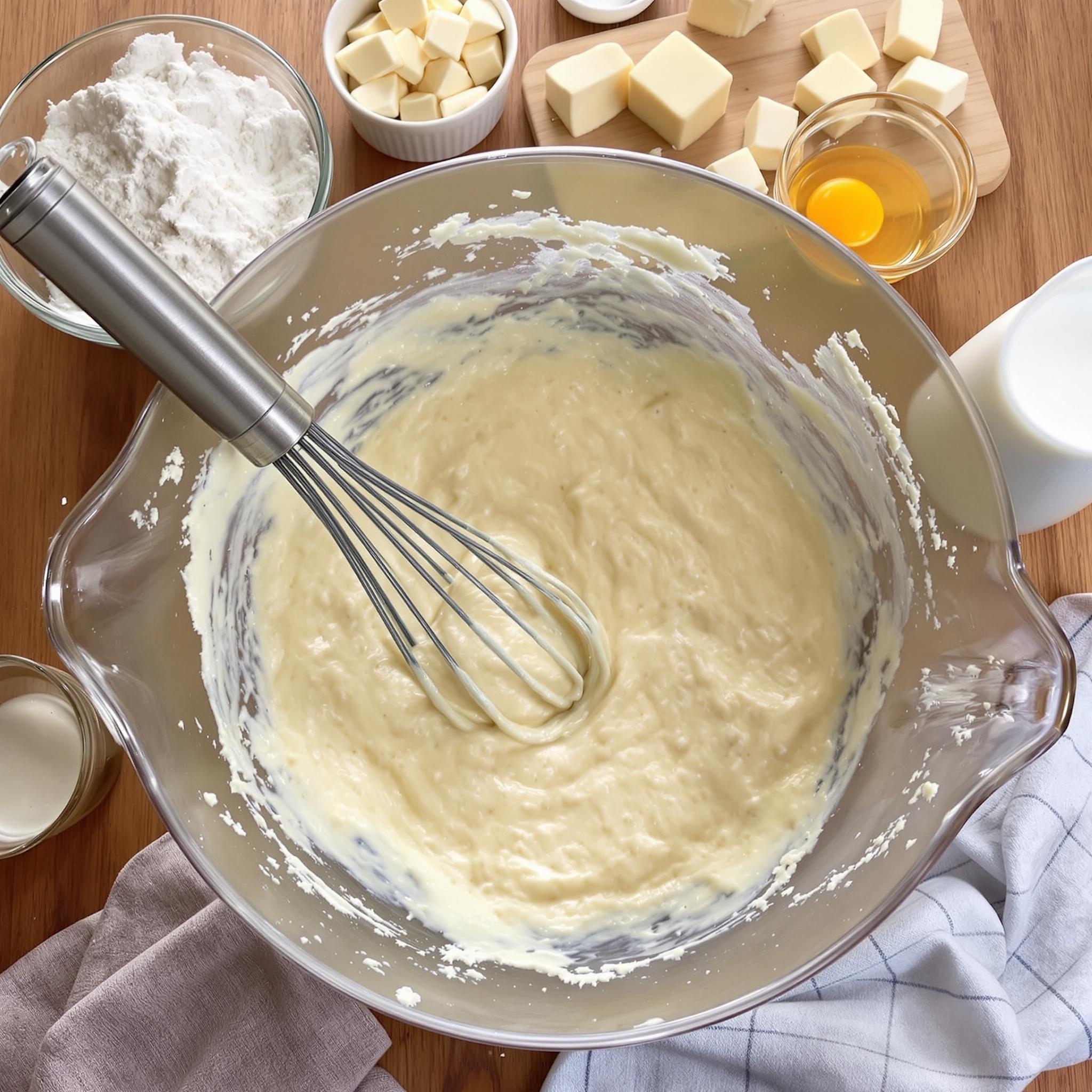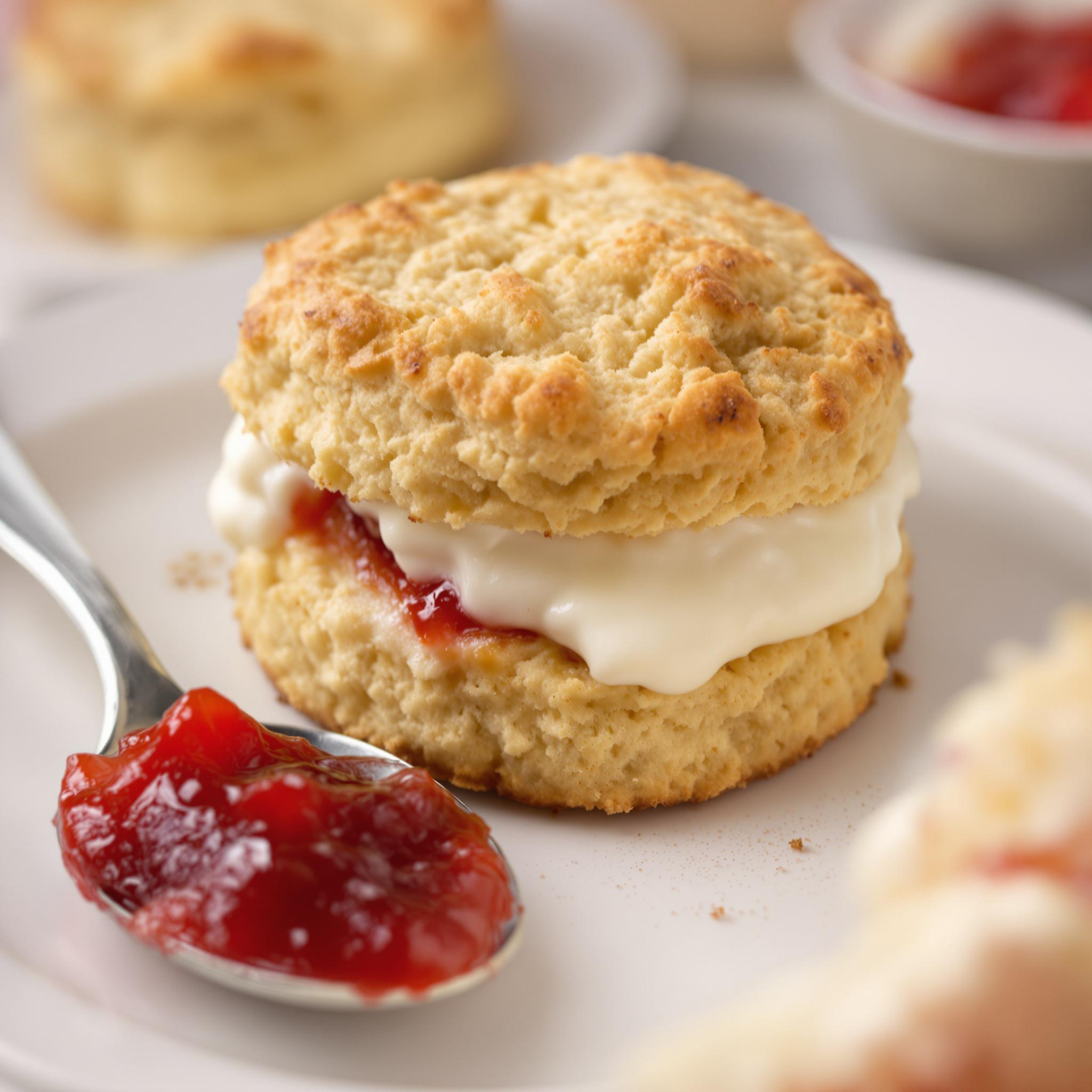Introduction
British Scones are a classic treat that makes tea time extra cozy. These buttery, soft pastries go great with clotted cream and jam. I first fell in love with them at a little café in London. They’re simple but oh-so-satisfying. Let me show you how to whip them up at home.
History of British Scones
Scones have been a British staple for ages. Back in the day, they were plain and round, perfect for farmers needing a quick bite. Over time, people started making them sweet or savory. Now, they’re famous worldwide, especially during afternoon tea. My family loves them warm with cream and strawberry jam.
Why You’ll Love This Recipe
This recipe is super easy, even if you’re new to baking. The dough comes together fast, and the scones always turn out fluffy. Plus, your kitchen will smell amazing with butter and currants wafting through the air. It’s nostalgic yet fresh every time you bake it.
Perfect Occasions to Prepare British Scones
These scones are perfect for tea time, brunch, or breakfast. Serve them at baby showers, garden parties, or holiday get-togethers. They also make great gifts for friends and neighbors.
Ingredients
- 2 cups all-purpose flour
- 1 tablespoon baking powder
- ½ teaspoon salt
- ⅓ cup unsalted butter, cold and cubed
- 3 tablespoons sugar
- ¾ cup milk
- 1 egg, beaten
- ½ cup currants
Substitution Options
No currants? Use raisins or dried cranberries. For dairy-free, swap butter with vegan margarine and use almond milk. If you like less sweetness, cut the sugar to 2 tablespoons.
Preparation
Step 1: Preheat and Prepare
Preheat your oven to 220°C (425°F). Line a tray with parchment paper. A hot oven helps get that golden crust.
Step 2: Mix Dry Ingredients
In a bowl, sift the flour, baking powder, and salt. Sifting keeps the scones light and airy. Stir in sugar and currants. It should smell sweet and inviting.
Step 3: Cut in the Butter
Add cold, cubed butter to the dry mix. Use a pastry cutter or your fingers to blend until it looks like fine crumbs. Cold butter makes flaky layers. Take your time—it matters.
Step 4: Add Wet Ingredients
Pour in the milk and beaten egg. Mix gently until the dough forms. Don’t overwork it; this keeps the scones tender. The dough should be slightly sticky but manageable.
Step 5: Shape and Bake
Turn the dough onto a floured surface. Roll it to about 2.5cm thick. Use a round cutter to shape the scones. Place them on the tray and bake for 12-15 minutes. Watch them puff up and turn golden.
Chef’s Tip
Brush the tops with milk before baking for a shiny, golden finish.
Time
- Prep Time: 15 minutes
- Cooking Time: 15 minutes
- Total Time: 30 minutes
Nutritional Information
Each scone has about:
- Calories: 200
- Protein: 4g
- Fat: 8g
- Carbohydrates: 28g
Extra Information
Fun fact: In Devon and Cornwall, scones are served with clotted cream. People still argue whether to spread the cream or jam first!
Necessary Tools
- Mixing bowls
- Pastry cutter or fork
- Rolling pin
- Round cookie cutter
- Baking tray
Storage Instructions
Store cooled scones in an airtight container. They stay fresh for two days at room temp. To keep them longer, freeze them in a zip-top bag. Reheat frozen scones in the oven for a few minutes.
Avoid storing scones in the fridge—it dries them out. If freezing, wrap them individually in plastic wrap.
If you plan to eat them within a day, leave them on the counter. Just cover them to keep them fresh.
Tips and Tricks
- Use very cold butter for flakier scones.
- Don’t twist the cutter when shaping; press straight down for even rising.
- Add a pinch of cinnamon for a subtle spice kick.
Serving Suggestions
Serve scones with clotted cream and strawberry jam for a traditional touch. For something different, try honey butter or lemon curd. Pair them with a hot cup of Earl Grey tea.
Healthier Alternatives for British Scones
Here are six ways to make this recipe healthier:
1. Swap half the flour with whole wheat for more fiber.
2. Replace some milk with Greek yogurt for extra protein.
3. Reduce sugar to 2 tablespoons for a less sweet version.
4. Use solid coconut oil instead of butter for a dairy-free option.
5. Skip dried fruit and fold in fresh berries instead.
6. Sprinkle oats on top before baking for added texture.
Common Mistakes to Avoid
Mistake 1: Overmixing the Dough
Overmixing makes scones tough. Stop as soon as the dough comes together.
Mistake 2: Skipping the Sift
Skipping the sift leads to uneven rising. Always sift your dry ingredients.
Mistake 3: Using Warm Butter
Warm butter melts into the flour instead of creating flaky layers. Keep it cold.
Mistake 4: Twisting the Cutter
Twisting seals the edges, preventing proper rise. Press straight down for tall scones.
Mistake 5: Baking Too Long
Overbaking dries them out. Check at 12 minutes. They should be golden brown and fragrant.
Frequently Asked Questions
Can I make scones ahead of time?
Yes! Shape the dough, freeze unbaked scones, and bake directly from frozen. Add a couple extra minutes.
What if I don’t have a round cutter?
Use a glass or knife to cut squares. Shapes don’t affect taste, just how they look.
Why are my scones flat?
Flat scones happen from overmixing or old baking powder. Handle gently and check your leavening agents.
Can I add chocolate chips?
Absolutely! Chocolate chips work great instead of currants for a sweeter treat.
How do I know when scones are done?
They’re done when golden brown and firm. A toothpick should come out clean.
Do I need to chill the dough?
Chilling isn’t required but helps maintain structure. Chill for 15 minutes if the dough feels too soft.
What’s the best milk to use?
Whole milk adds richness, but any milk works. Plant-based milks like almond or oat are fine alternatives.
Can I double the recipe?
Yes! Double all ingredients. Just don’t overmix the larger batch.
Why do scones split open?
Splitting happens naturally as scones rise. Score the tops lightly to control where they split.
How do I reheat leftover scones?
Reheat in a 180°C (350°F) oven for 5-7 minutes. This restores their softness and flavor.
Conclusion
British Scones are a timeless treat that brings joy to any occasion. Whether you’re hosting a tea party or craving a snack, this recipe delivers. With simple steps and endless variations, it’s sure to become a favorite. Happy baking!

Equipment
- Large bowl
- Pastry cutter or fork
- Rolling pin
- Round cookie cutter
- Baking tray
Ingredients
- 2 cups all-purpose flour
- 1 tablespoon baking powder
- ½ teaspoon salt
- ⅓ cup unsalted butter cold and cubed
- 3 tablespoons sugar
- ¾ cup milk
- 1 egg beaten
- ½ cup currants
Instructions
- Preheat oven to 220°C (425°F) and line a baking tray with parchment paper.
- Sift the flour, baking powder, and salt in a large bowl.
- Add cold butter to dry ingredients and blend until the mixture resembles fine breadcrumbs.
- Gradually pour in the milk and beaten egg, mixing gently to form a soft, slightly sticky dough.
- Turn the dough onto a floured surface, roll it out to about 2.5cm thickness, then cut with a round cutter and place on the baking tray.
- Bake for 12-15 minutes until golden brown.


